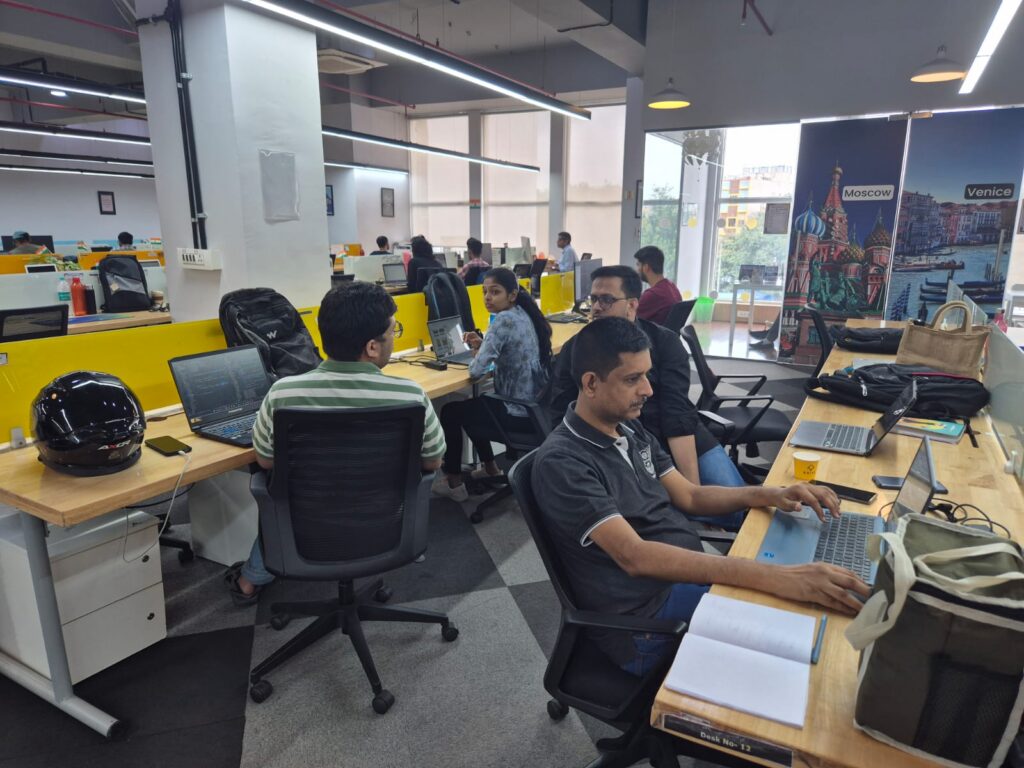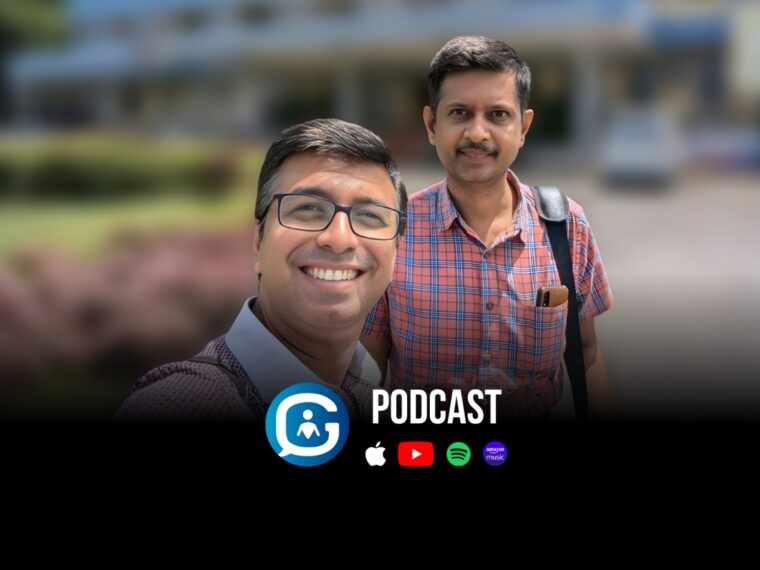Table of Contents
Picture this: You walk into a restaurant in Bangalore, scan a QR code, and the waiter immediately knows you’re allergic to prawns and suggests your usual coffee from last month’s visit. No fumbling through menus, no language barriers, no awkward explanations. This isn’t science fiction; it’s what MobiGuest is building today.
The hospitality industry runs on a peculiar contradiction. While travellers expect seamless digital experiences everywhere else, hotels still rely on landlines, paper menus, and front desk forms that haven’t changed since the 1980s. Founders Raman Verma and Anand M R saw this gap during their two decades in tech at companies like Intuit and decided to bridge it.
The WhatsApp concierge revolution
MobiGuest transforms WhatsApp into an AI-powered concierge for hotels and restaurants. Instead of calling the front desk or hunting down a server, guests simply scan a QR code and start chatting. Need room service? Ask on WhatsApp. Want to know gym hours? WhatsApp knows. Craving recommendations that pair well with your meal? The AI suggests options based on your preferences.
We are a company whose mission is to power the delightful conversations between businesses and guests.
The platform doesn’t eliminate human interaction; it enhances it by removing tedious paperwork and repetitive questions.
Here’s how it works in practice: When you check into a hotel using MobiGuest, you receive a WhatsApp message with all essential information, Wi-Fi passwords, breakfast hours, and spa timings. Interactive buttons let you access services instantly. Need the Wi-Fi password again at 2 AM? Just ask. The system remembers your preferences across visits, creating continuity that traditional hospitality struggles to achieve.
Why MobiGuest’s approach matters
Unlike competitors who build web apps or standalone applications, MobiGuest chose WhatsApp deliberately. “There is an app fatigue that all of us started to set in. Like, who will install another app?” Raman notes. WhatsApp is already on everyone’s phone, supports multiple languages, and enables true two-way conversations.
The timing aligns with generational shifts. Gen Z and Gen Alpha are digital natives who expect instant, personalised service. They’re comfortable ordering through their phones and want 24/7 access to services, something traditional landlines and paper menus can’t provide.
Consider the operational impact: Instead of spending 60 seconds rattling off breakfast times and Wi-Fi details to every guest, front desk staff can focus on meaningful conversations about local recommendations and personalised service.
From Intuit to AI hospitality
Both founders bring deep technical expertise. Raman spent nearly two decades in e-commerce, digital transformation, and fintech across companies like Intuit, Cognizant, and ASOS. Anand worked 14 years at Intuit and then at IBM, focusing on e-commerce, accounting, and payments systems.
Their complementary backgrounds, Raman as product manager, Anand as engineering manager, proved crucial when they reunited to tackle hospitality’s technology lag. “We both happened to talk through our own lens about something very similar,” Raman recalls about their initial discussions.

Early traction and market validation
Since launching in late 2023, MobiGuest has expanded to 50+ hotels across Bangalore, Goa, Shimla, Nainital, Jaipur, Nashik, and Mahabaleshwar. The platform recently added restaurants to its portfolio, broadening its market reach.
One memorable validation came at a trade fair: “A hotelier from Shimla said, ‘Finally I found you. It took me three years to find you. I’ve been waiting for this product.” Raman recounts. The customer signed up for an annual plan immediately.
The global guest experience technology market supports their thesis. Canary Technologies, a U.S. competitor focusing on web experiences, raised over $50 million with revenue jumping from $5 million to a projected $20+ million. The broader hospitality tech market is evolving toward $7 billion globally within three to five years.
Beyond hotel rooms: the bigger vision
MobiGuest’s ambitions extend beyond hotel services. The founders envision enabling end-to-end travel experiences, booking dinner cruises, local activities, and experiences while guests stay at hotels. This positions them to compete with platforms like Airbnb Experiences and TripAdvisor.
“You’re spending 12 hours in the hotel, but you are not only using their services,” Raman explains. By partnering with local vendors and activity providers, MobiGuest could become the central hub for travellers’ complete journey.
The company targets 3x growth over the next six months, aiming for 150+ business partnerships by year-end. They plan a friends and family funding round followed by an angel round in early 2025.
| Challenge | MobiGuest’s Approach |
| Long sales cycles | Focus on reaching decision-makers who understand operations |
| Integration complexity | Partner with existing hotel tech providers (PMS, POS systems) |
| New category education | Work with ecosystem partners, consultants, and channel partners |
The hospitality industry’s centralised decision-making creates longer conversion cycles, but once the right stakeholder understands the value proposition, adoption accelerates quickly.
MobiGuest represents more than a technology upgrade; it’s a fundamental shift toward conversation-based hospitality. As digital natives become the primary travel demographic, platforms enabling instant, personalised service through familiar interfaces will likely become standard rather than novel.
The question isn’t whether hotels will adopt conversational AI, but which platforms will define that experience. MobiGuest’s early traction suggests they’re positioning well for this transformation.
Watch the full podcast episode here:
More about them here:
MobiGuest is featured in The First Brick series. The series highlights promising early-stage companies.
What are your thoughts on MobiGuest by Raman and Anand? Tell us in the comments below.
Did you read our last article on EEzyVolt, an EV Battery startup by Arvind Peehal? Read it here.

